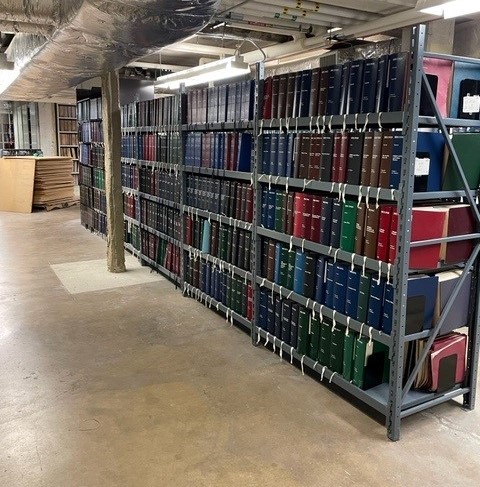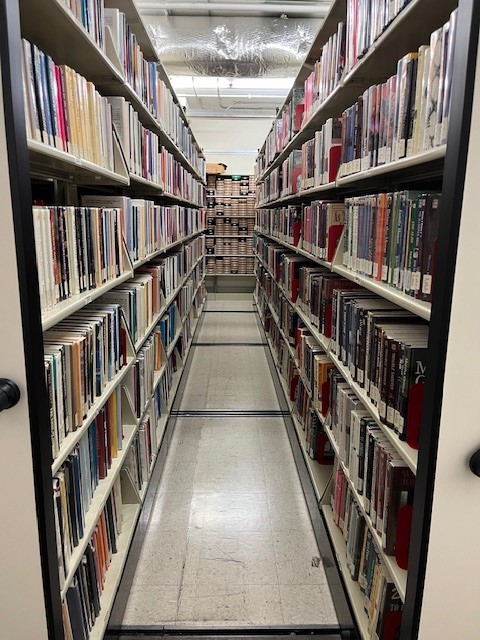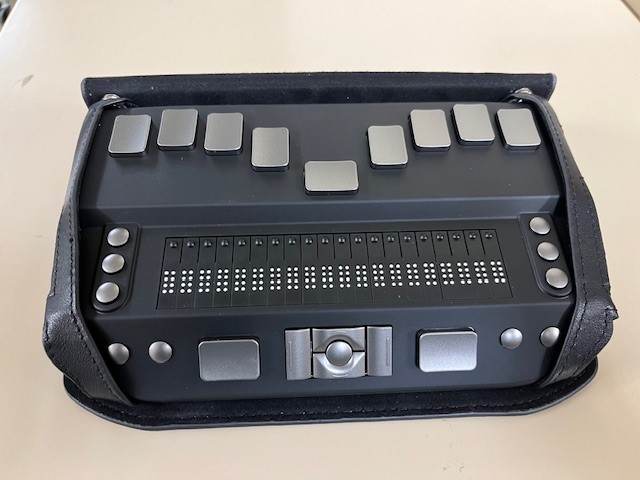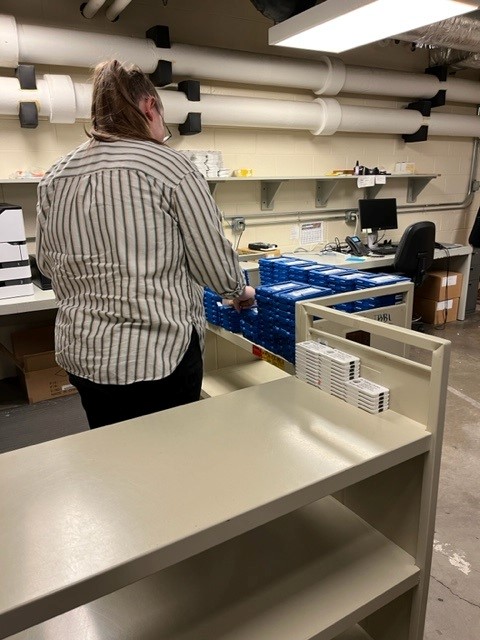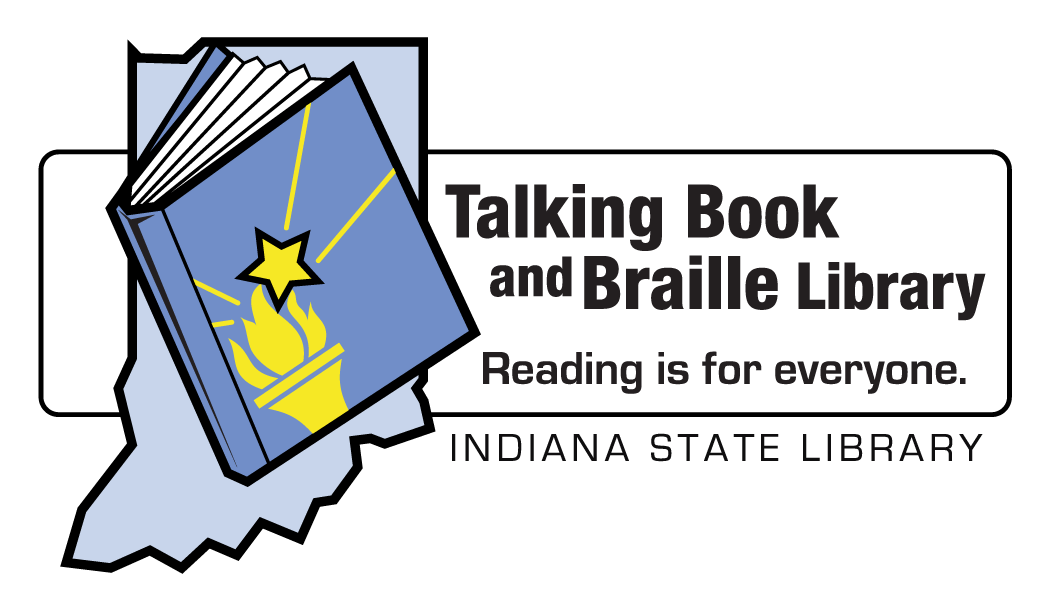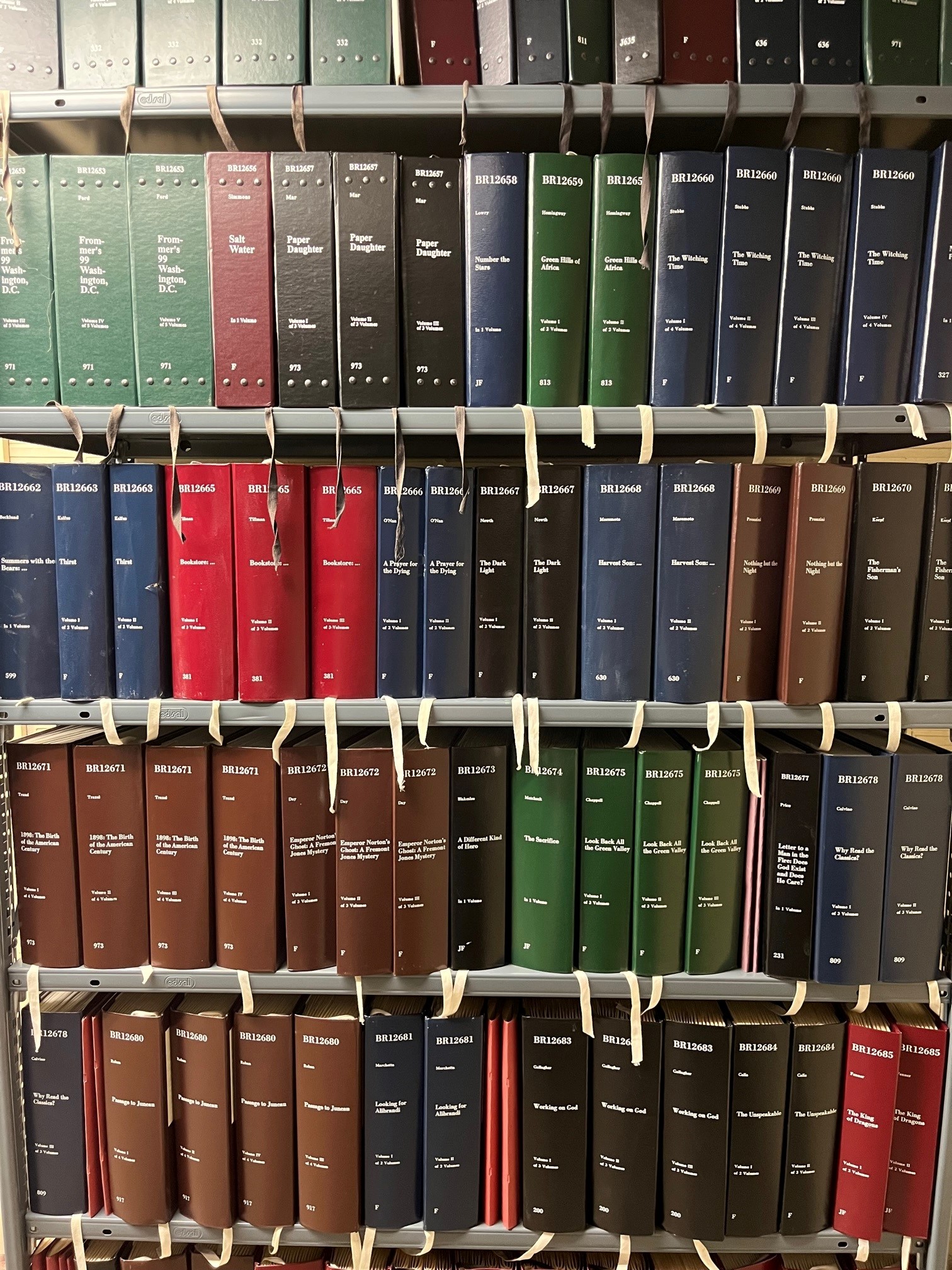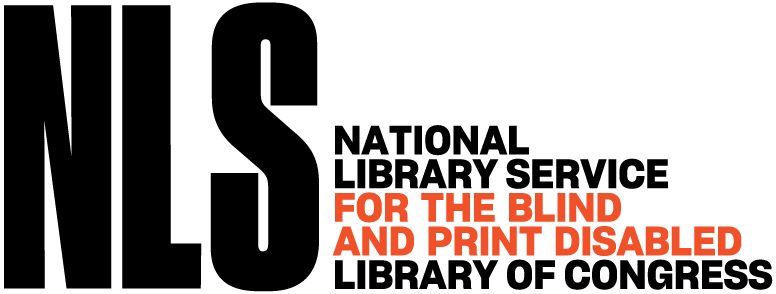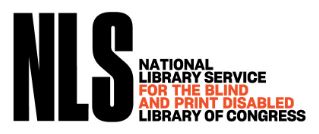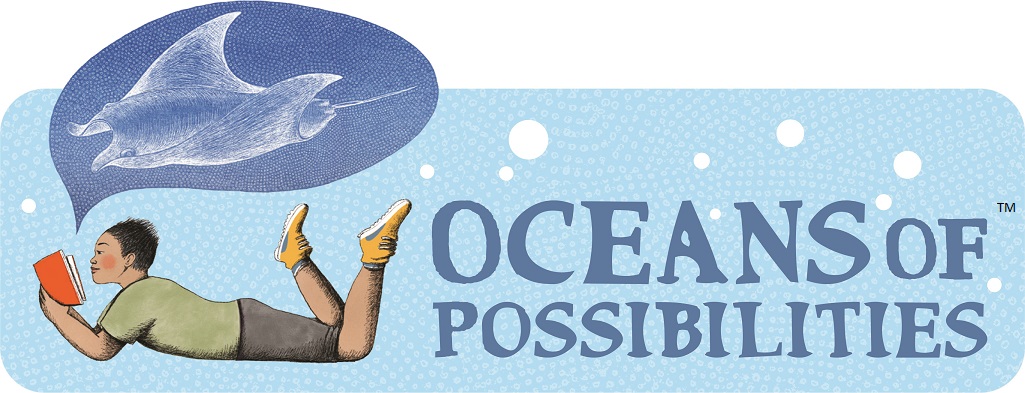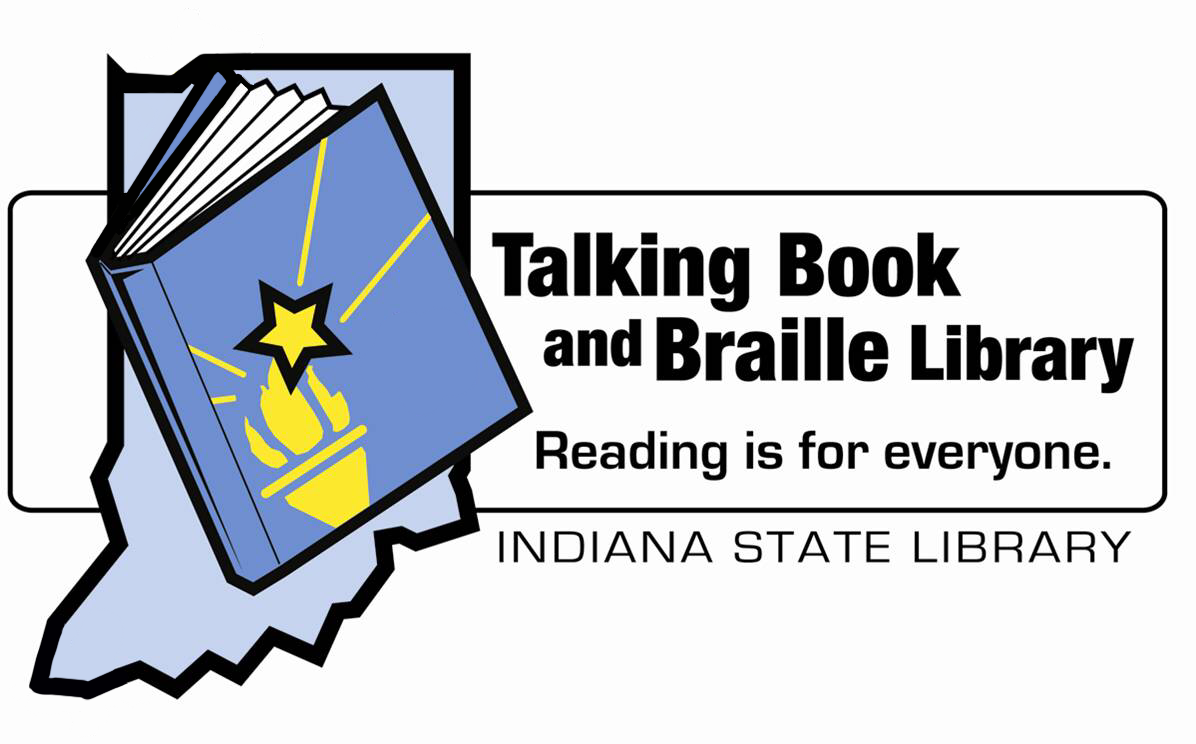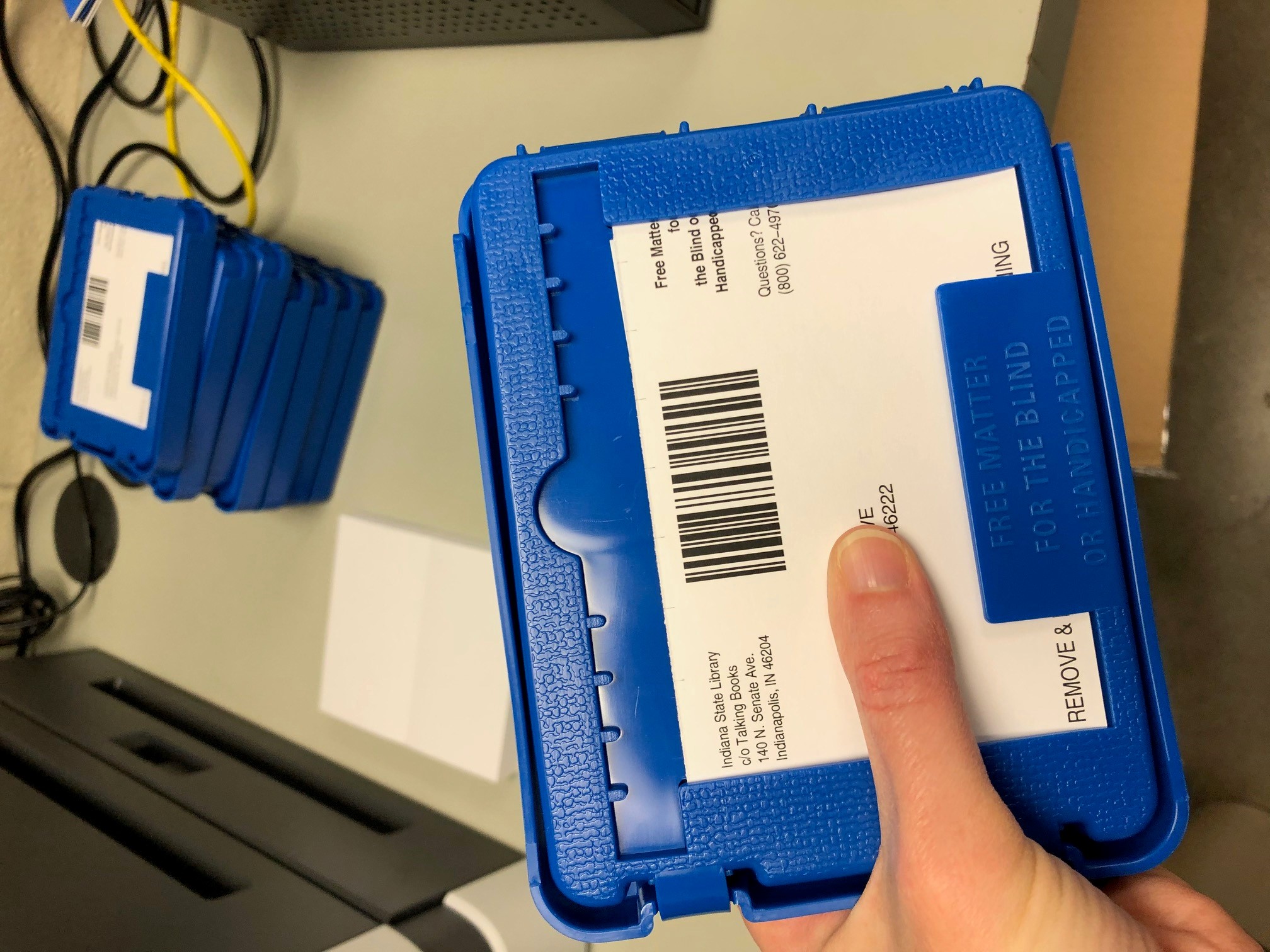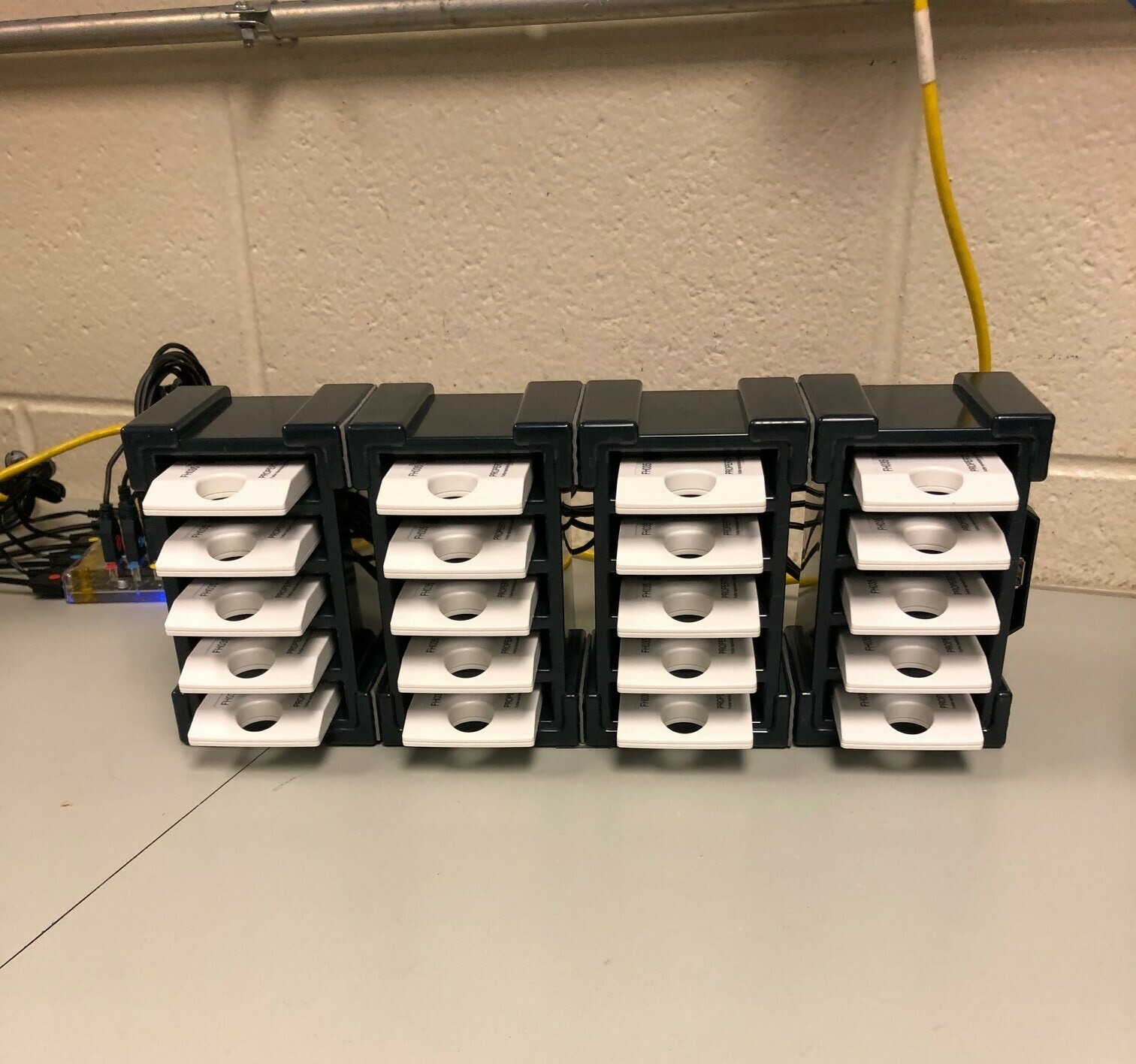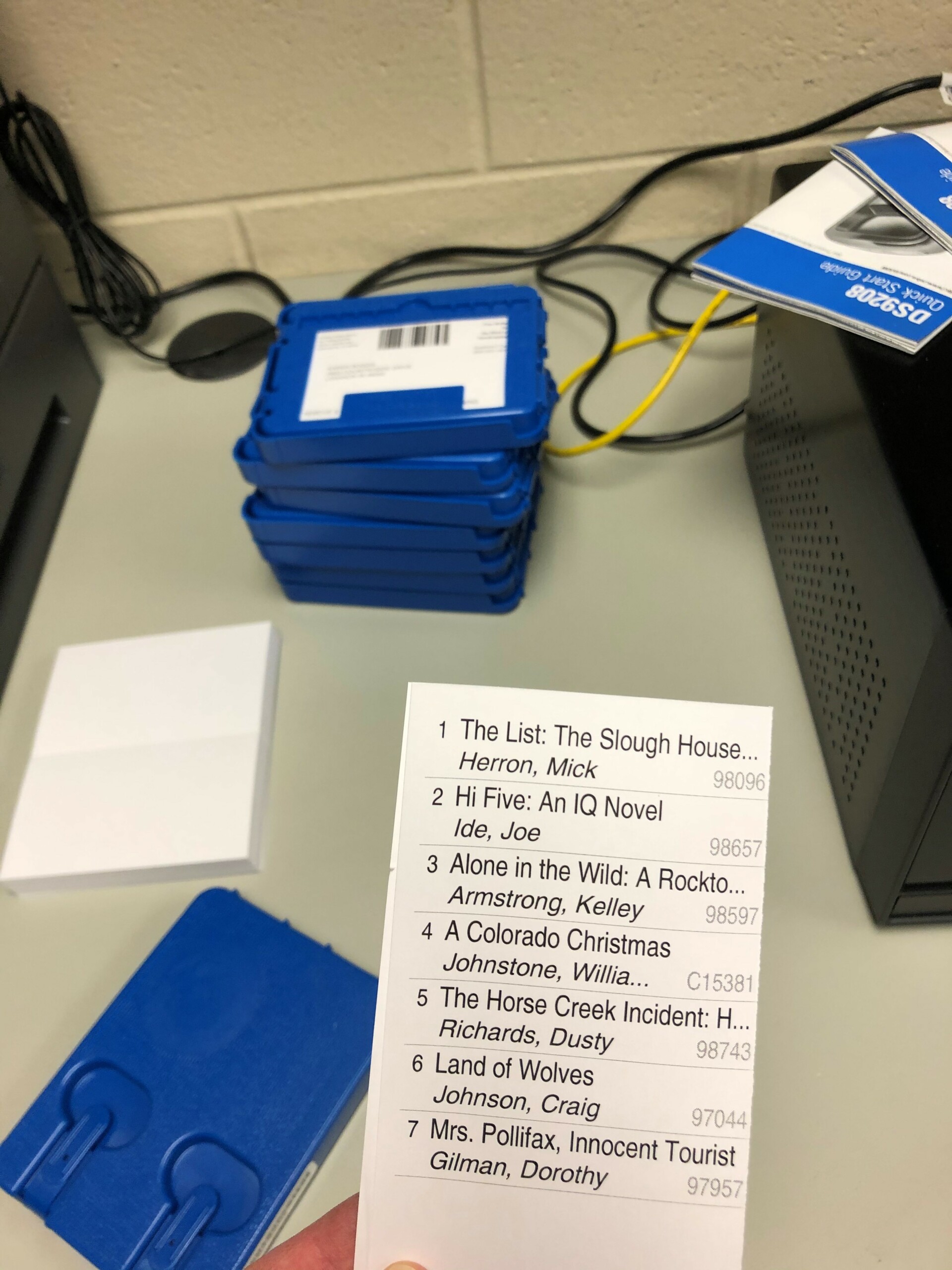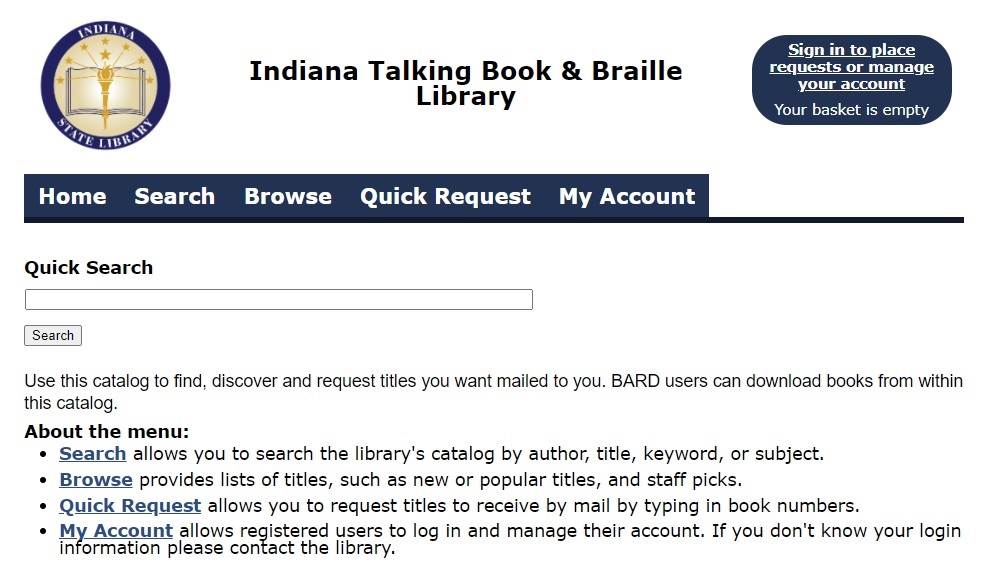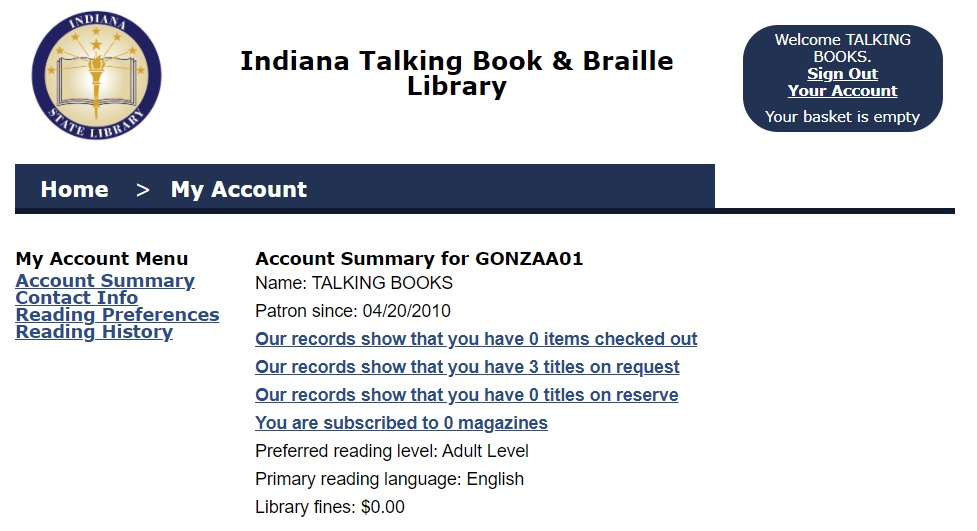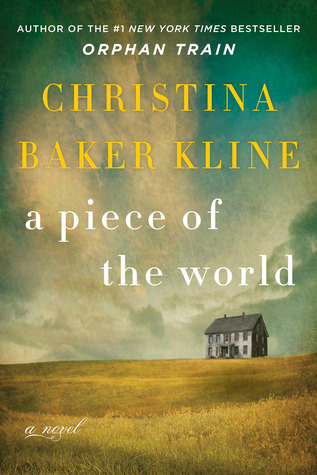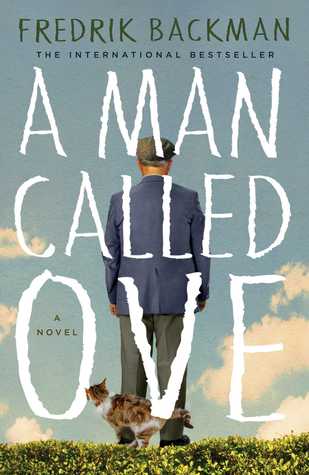The Indiana Talking Book and Braille library would like to share some interesting information from our history and our current service. For more information about the National Library Service visit here, or visit the Indiana State Talking Book & Braille Library website.
- The first embossed books were mailed to Indiana patrons in 1905. This means that the Indiana Talking Book & Braille Library has been serving patrons for 119 years. The Indiana Talking Book & Braille Library became a regional library of the National Library Service in 1934.
- The original collection of embossed books was made up of 300 volumes; 200 were donated books. The Indiana Talking Book & Braille library now has over 25,000 braille books.
- The concept of a national library for the blind was developed in 1897 by John Russell Young, the Librarian of Congress, when he established a reading room for the blind with about 500 books and music items in raised characters.
- Congress created the National Library Service in 1931 out of concern for veterans who were blinded in World War I. Veterans still get priority today.
- On March 3, 1931, the Pratt-Smoot Act established the National Library Service for the Blind and it became part of the Library of Congress.
- Braille was created by Louis Braille in in 1824 while he was still a teenager. A more uniform system of Braille was established in 1933.
- The first talking books were recorded as records in 1934. According to the National Library Services web site, among the titles chosen for the first orders of talking books were the Declaration of Independence; the Constitution of the United States; Washington’s “Farewell Address;” Lincoln’s “Gettysburg Address;” Shakespeare’s “As You Like It,” “The Merchant of Venice,” and “Hamlet;” Kipling’s “Brushwood Boy;” and Wodehouse’s “Very Good Jeeves.”
- Between 1935 and 1942, as part of the Works Project Administration, 5,000 talking book machines were created.
- Children were added to the mission of the National Library Service in 1952. Patrons with physical or reading disabilities were added in 1966.
- The Indiana Talking Book & Braille Library currently has over 23,000 large print books. Public libraries in the state of Indiana are welcome to check out collections for their patrons’ use.
- In 1979, the American Library Association published “Standards of Service for the Library of Congress Network on Libraries for the Blind and Physically Handicapped.” It has been updated multiple times since then.
- In 1997, the FBI seized from music pirates $200,000 worth of state-of-the-art duplicating equipment and donated it to the talking book program.
- In the history of the National Library Service, they have provided records and record players, cassette tapes and cassette players, reel to reel tapes, digital duplication of books on demand and digital players and refreshable braille e-readers to the talking book program.
- The Indiana Talking Book & Braille library presents Indiana Vision Expo every two years. In 2023, the event had more than 150 participants. The next Vision Expo will be in September of 2025.
- In 2023, the National Library Service made braille on demand books available to their patrons. These books are embossed and sent to the patron to keep.
- In 2024, the Indiana Talking Book & Braille Library will be sending out braille e-readers to patrons who can use them.
- The Indiana Talking Book & Braille Library has seven staff members working toward getting books to their patrons.
- In 2023, the Indiana Talking Book & Braille Library had almost 5,000 active users, and circulated more than 400,000 items.
This blog post was written by Judy Gray, Indiana Talking Books and Braille Library supervisor.

